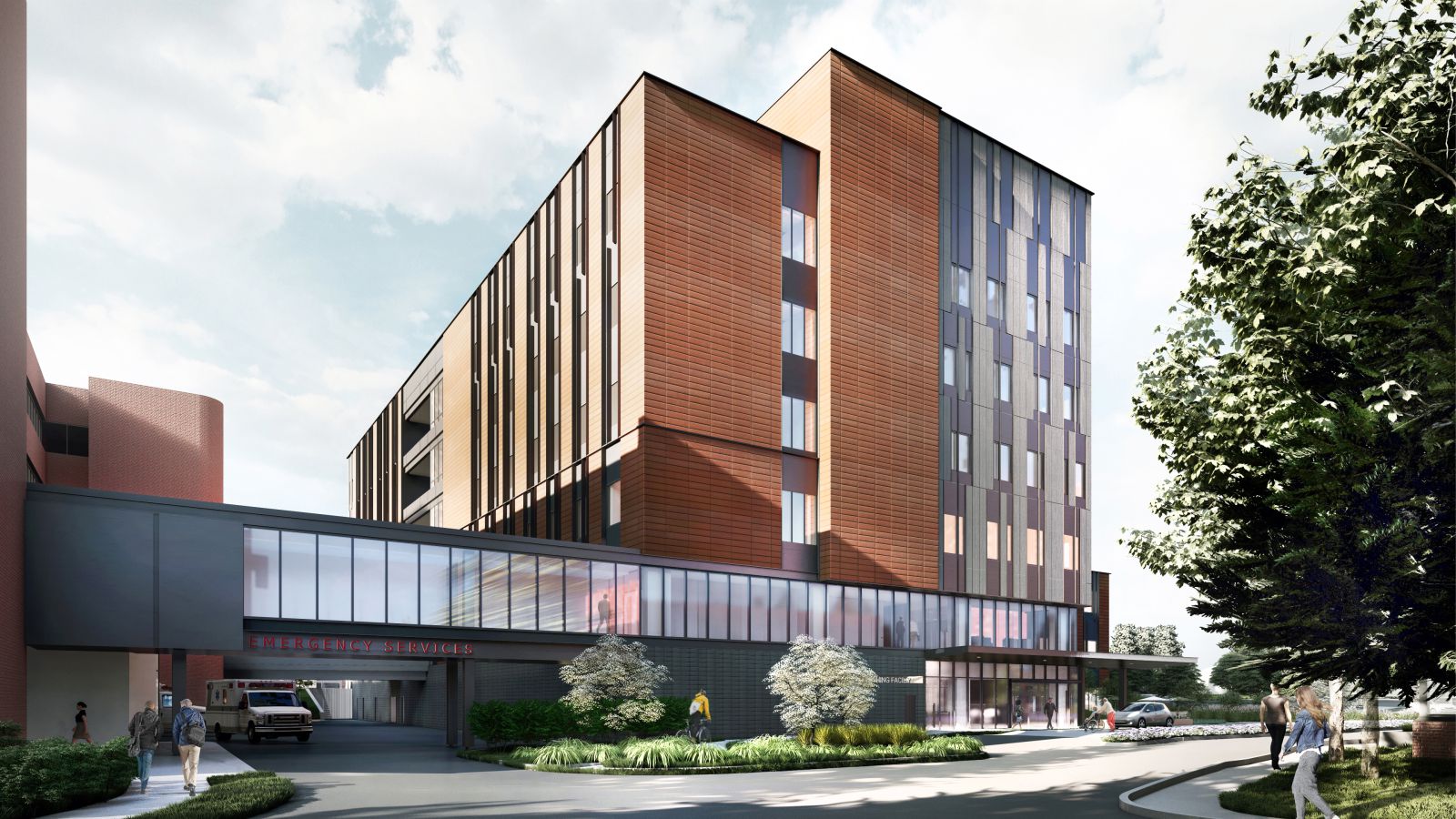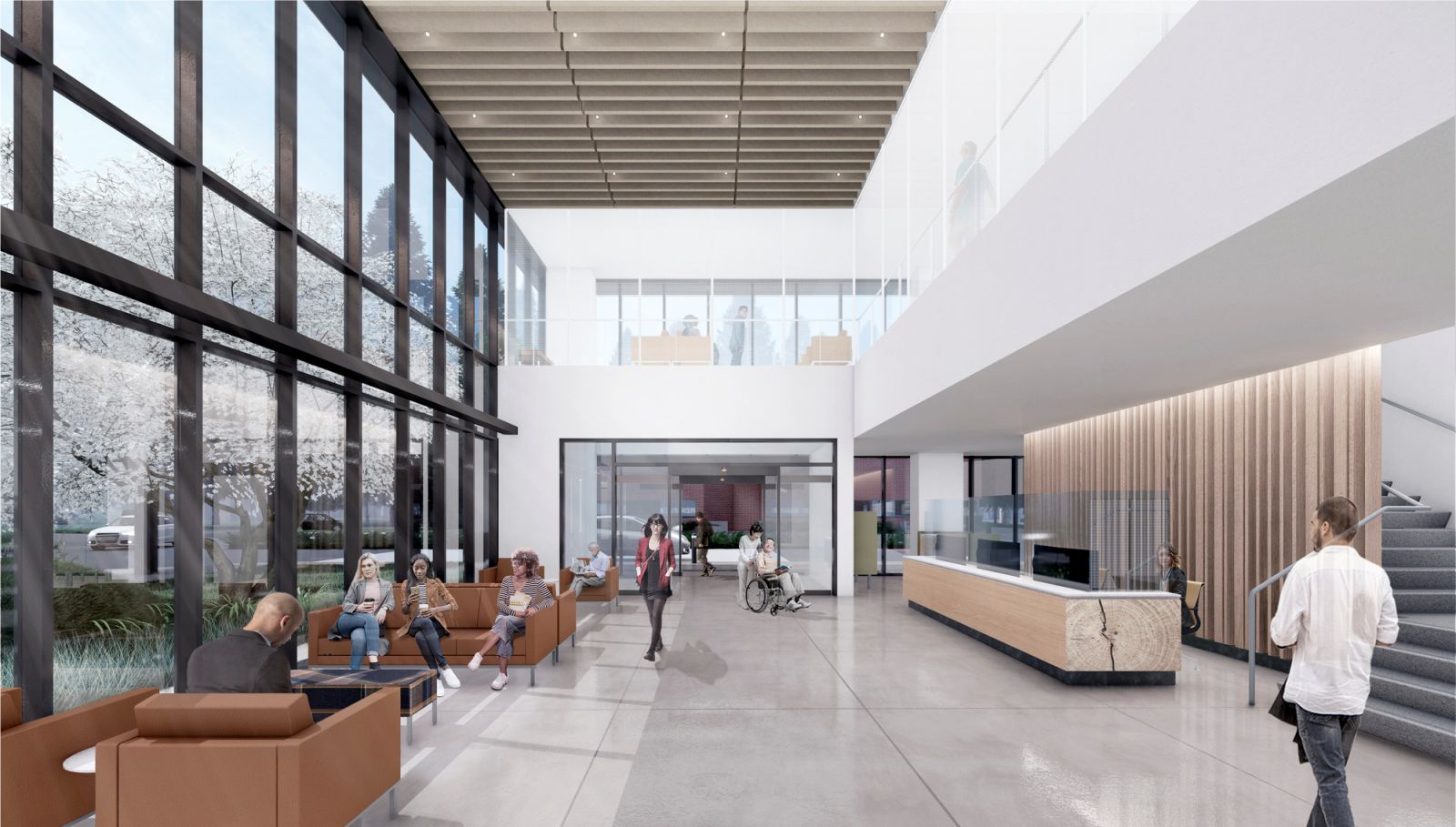The University of Washington has established a bold vision for a new Behavioral Health Teaching Facility that will become the foundation for positive transformation of the entire Behavioral Health system in the state of Washington. Located adjacent to an existing acute care hospital on the UW Medical Center Northwest Campus.
The new six-story, 184,000-square-foot building will be a fully integrated welcoming and healing environment for individuals struggling with both physical and behavioral health conditions. The facility will support a full continuum of clinical services ranging from effective medication management and psychotherapies to state-of-the-art neuromodulation treatments, as well as medical and surgical care for individuals with behavioral health disorders.

The progressive design-build team of SRG Partnership, Clark | Abbott Joint Venture and the University of Washington are working together to deliver an efficient, safe, and quality setting that promotes wellbeing, healing, and learning around a new patient-centered model. In this state-of-the-art Integrated Care program, medical, mental health, and social service professionals will collaborate closely to provide a holistic approach to patient care that reinforces the connection between mind and body.
The siting integrates the new building into campus by providing active ground level public amenities including indoor and outdoor dining, conference rooms, and state-of the art neuromodulation services. These open and inviting public spaces will be used to promote mental health awareness across the campus, community, and state. Levels two and three will have 50 medical / surgical beds and separate service and public skybridges at level two that connect to the existing Emergency Department to leverage and expand the campus’s operational capabilities.

The top three levels feature flexible behavioral health inpatient units. Standardized configurations respond to a variety of needs ranging from highly structured programs to programs that promote independence and community integration. Open-concept social and dining spaces will create a residential atmosphere fostering serenity and comfort. Smaller, semiprivate adjacent spaces will provide opportunities for patient choice and areas of respite and quiet.
The new building will also feature dedicated on-unit outdoor patient landscaped terraces to emphasize connections to fresh air and nature as well as a larger shared outdoor therapy/recreation space to support physical activity and exercise. Recognizing that the new building is an expansion of the existing hospital, attention to scale, articulation, openness, and warmth will reinforce the vision for a new standard of behavioral health care.

The design will maximize access to daylight and views while assuring patient privacy, dignity, and safety. A minimal neutral palette will be used with wood tones and accents throughout to create a serene and comforting environment and a sense of place that eases stress and is inviting to patients, family and visitors. Establishing a new benchmark for behavioral health, this innovative facility has a commitment to healing, training and education, and integration into the community as a resource for mental health advocacy.
Slated for completion at the end of 2023, the building will be a home for an interdisciplinary training and workforce development program focused on preparing and supporting the next generation of health care providers for Washington State. Source by SRG.

- Location: Seattle, Washington, USA
- Architect: SRG
- Design Principal: Carl Hampson, Laurie Canup
- Project Director: Pierce McVey
- Senior Project Manager: Aimee Duquette
- Senior Medical Planner: Lori Epler Hout
- Technical Design Manager: Jessica Paley
- Design Team: Phil Lopez, Jon Mehlschau, Anais Adamska, Michael Talbot, Kristopher Chan, Michael Canales, Stephanie Tauber, Steve Seely, Eric Wilcox, Jim Wilson, Rich Rapp, Jessica Mistretta, Samantha Kelsey, Kirill Ryadchenko, Craig Tompkins, Marianeth Berecil, Zachary Melnik, Rachel Lozeau, Cary Chu
- General Contractor: Clark | Abbott Joint Venture
- Mechanical Contractor: McKinstry
- Electrical Contractor: Veca Electric & Technologies LLC
- Civil Engineer: KPFF in collaboration with CM Design Group
- Structural Engineer: Thornton Tomasetti in collaboration with Lund Opsahl
- Mechanical Engineer: Mazzetti in collaboration with Modern Mechanical, Bogard Engineers, The Greenbusch Group
- Electrical Engineer: PAE Engineers
- Lighting Design: HLB Lighting Design Inc.
- Landscape: OJB Landscape Architecture in collaboration with Osborn Consulting
- Signage/Wayfinding: Mayer/Reed
- Food Service: Ricca Design Studios
- Accessibility: Studio Pacifica
- Acoustical Engineer: The Greenbusch Group
- Code: Code Unlimited
- Vertical Transportation: Lerch Bates
- Logistical Consulting: Lerch Bates Logistics
- Specifications: Applied Building Information
- Building Envelope Consultant: 4EA Building Science (formerly JRS Engineering)
- Steel: Schuff Steel
- Horizontal Enclosure: Queen City Sheet Metal & Roofing
- Framing, GWB and Ceiling Systems, Vertical Enclosure: Performance Contracting Inc
- Security Consultant: PCI Pennelli Consulting
- Glazing: MiTek (formerly Benson Industries)
- Vertical Transportation Subcontractor: KONE Elevators & Escalators
- Pneumatic Tube Systems: Swisslog
- Hardware Consultant: Allegion
- Year: 2022
- Images: Courtesy of SRG










